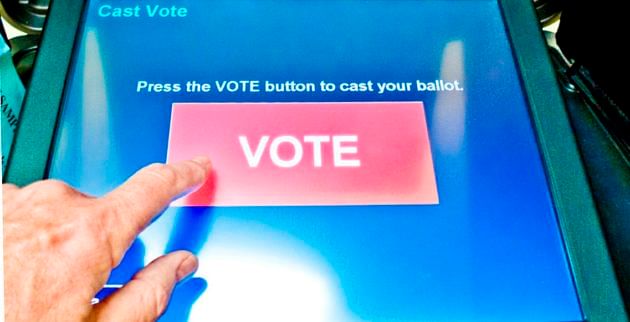The elections in a Union Territory are conducted according to the constitution of India to elect representatives of various bodies at national, UT, and district levels. The recent election in the union territory of Jammu and Kashmir took place between the 28th of November 2020 to the 19th of December 2020 in the form of elections for District Development Council, by-elections for municipal and Panchayat level bodies. In the erstwhile state of Jammu and Kashmir, legislative assembly elections have been held 11 times since 1951, whereas parliamentary polls 12 times since 1967. Municipal elections have been elected five times since 1947, including the latest election of 2020
In India, the Panchayat Raj now functions as a governance system in which gram panchayats are the basic units of the local administration. The system has many levels: Gram Panchayat (village level), Mandal Parishad or Block Samiti (Block Level), block-level, and Zilla Parishad (district level), and it was the Gandhian goal of direct political participation of people at the grassroots level. In general, the gram panchayat carries out many functions such as public facilities, health, minor construction, minor irrigation, village roads, etc.
There’s no denying that Panchayat has been the backbone of Indian village administration for centuries now. Fashioned on the self-governance model, the Panchayat system provides local forms of the power structure in a diverse democracy like India. As an essential administrative component, the elections to Panchayat bodies become an indispensable act that needs to be widely accessible, transparent, and viable from the security and economic perspectives. However, my recent experience as an officer involved in the Panchayat elections posed serious questions on the mechanism of conducting these elections. To perform these elections in a free and fair manner, all the government machinery is involved in the process. All the Departments of the government become indispensable wings of the election commission of India without which the flight of elections shall not take-off. All the human resource of almost all the departments gets together to partake in the ceremonial purpose of breathing meaning into this whole process. However, the question that needs an urgent reply is whether this method is immortal like the concept of democracy itself or it can be changed according to the changing times.
Given the importance of education, the administration reprimands a teacher to the extent of suspension for arriving late or for missing a lecture, on the one hand, and on the other, the whole teaching staff of the Colleges, Higher Secondary Schools were put on election duty for more than a month. It is a million-dollar question whether any alternate arrangements for the teaching of students were made not. We need to be very unambiguous about the relative importance of the election process and the education system of this country. It is not just that the education department only became a causality of the system. The same is true for all the departments of the government. This is not to deny the importance of election; however, some serious questions need reflection—one of the central being the implementation of the online voting system.
Despite the truth that online is the new norm now and that governments allow everything online, we refuse to be modern when it comes to voting. It is time that we make alternative arrangements via technology for conducting online elections, something on the lines of Estonia. Given the scale of depressing effects that the traditional election system has on the state resources, it would be in the best interest of the country that i-voting is introduced. We can save funds which can be utilized for developmental works; crores of rupees are spent on the election process for transportation, security, human resource and stationary items. On one hand, we say that we are living in digital India, but on the other hand, we lag behind in many areas where we don’t make use of information technology to save our economic and human resources. All of us know that huge transactions are being made through online banking, and within a fraction of seconds, we receive complete transaction details via an SMS. It is hard to understand why a similar type of information technology is not being used for the i-voting system. All we need is a foolproof online identity system together with 100% digital literary. Although this is not an easy target to achieve, however, given the benefits and the subtle ways in which this can advance the economic and human resource of the country, this should not be a daunting challenge for the architects of the digital India.






